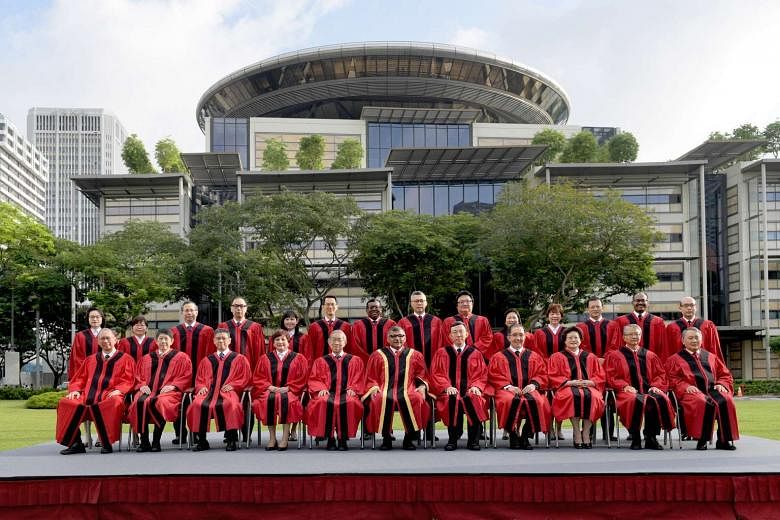SINGAPORE - Lawyers will be forced to rethink their practice, with technology transforming the legal sector more rapidly in recent years, said Chief Justice Sundaresh Menon on Monday (Jan 9).
For instance, the advent of online dispute resolution platforms to allow users to seek resolution without having to litigate have shown success, he said at the opening of the Legal Year 2017.
These platforms blend negotiations, mediation and arbitration with the capabilities of artificial intelligence, he said, adding: "It is just a matter of time before the same method are applied in other fields, such as motor accidents and workplace injury claim."
In response to these developments, a five-year technology blueprint charting the "courts of the future" and a unified One Judiciary IT Steering Committee were announced.
The blueprint proposes various IT initiatives that will be reviewed, revised and updated by the steering committee.
These recommendations were endorsed by the Chief Justice, following a study on how the courts can harness technology to enhance the administration of justice by a Courts of the Future Taskforce set up last year (2016).
He also announced the setting up of the Singapore Academy of Law's (SAL) Legal Technology Vision, which presents the SAL's adoption of legal technology and "the incubation of a legal tech scene in Singapore".
Its developmental road map, to be rolled out over five years, include encouraging widespread adoption of baseline technologies at small- and medium-sized law firms.
In addition, it lays out the possibility of a virtual marketplace that will help match demand and supply of legal services, and provide information and rating tools for lawyers and clients.
Rather than approaching technology as "something to be vanquished", the Chief Justice said: "Technology holds promise of greater productively and effectiveness. This should translate to higher quality legal services and cost savings for law firms, and ultimately, for society."




